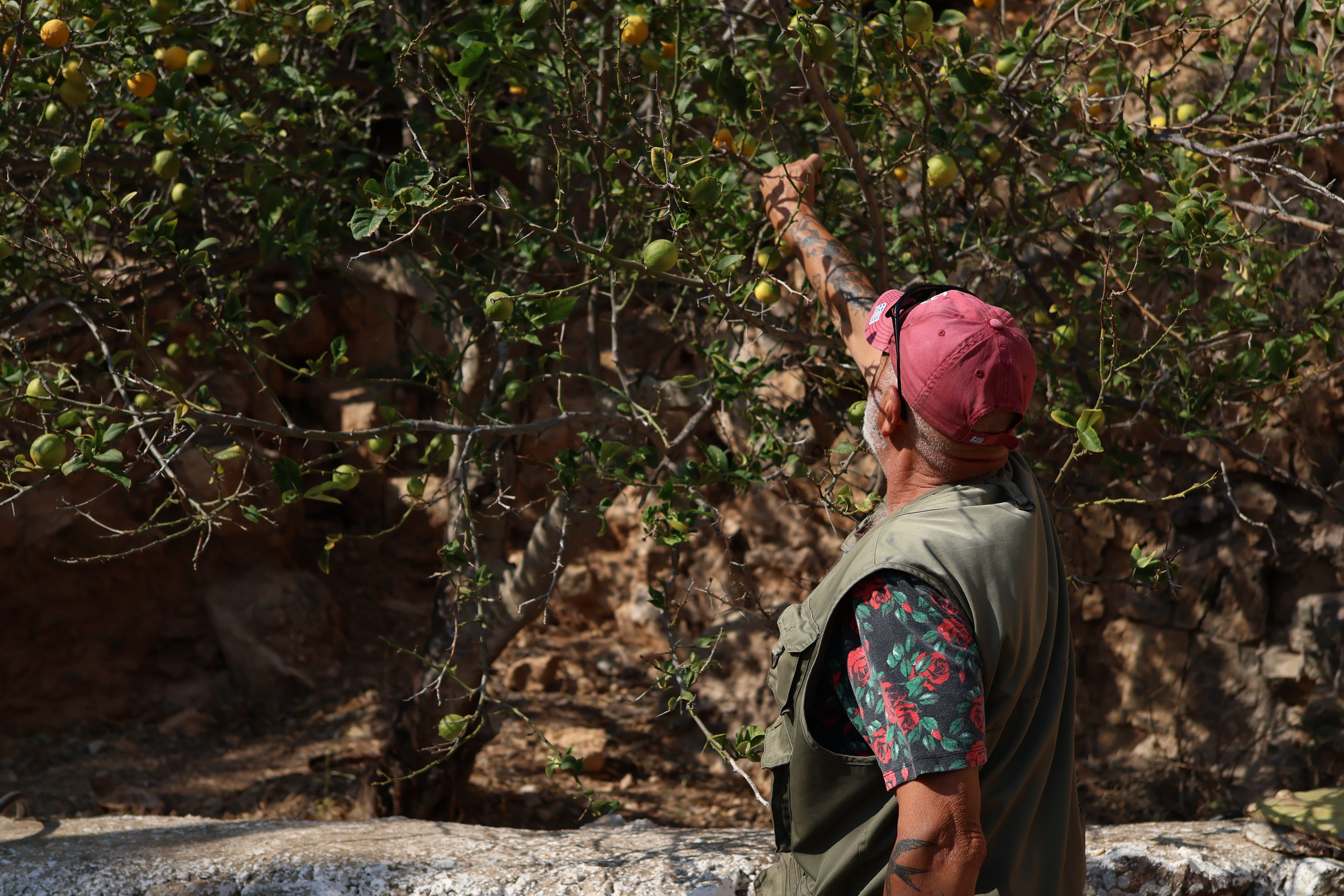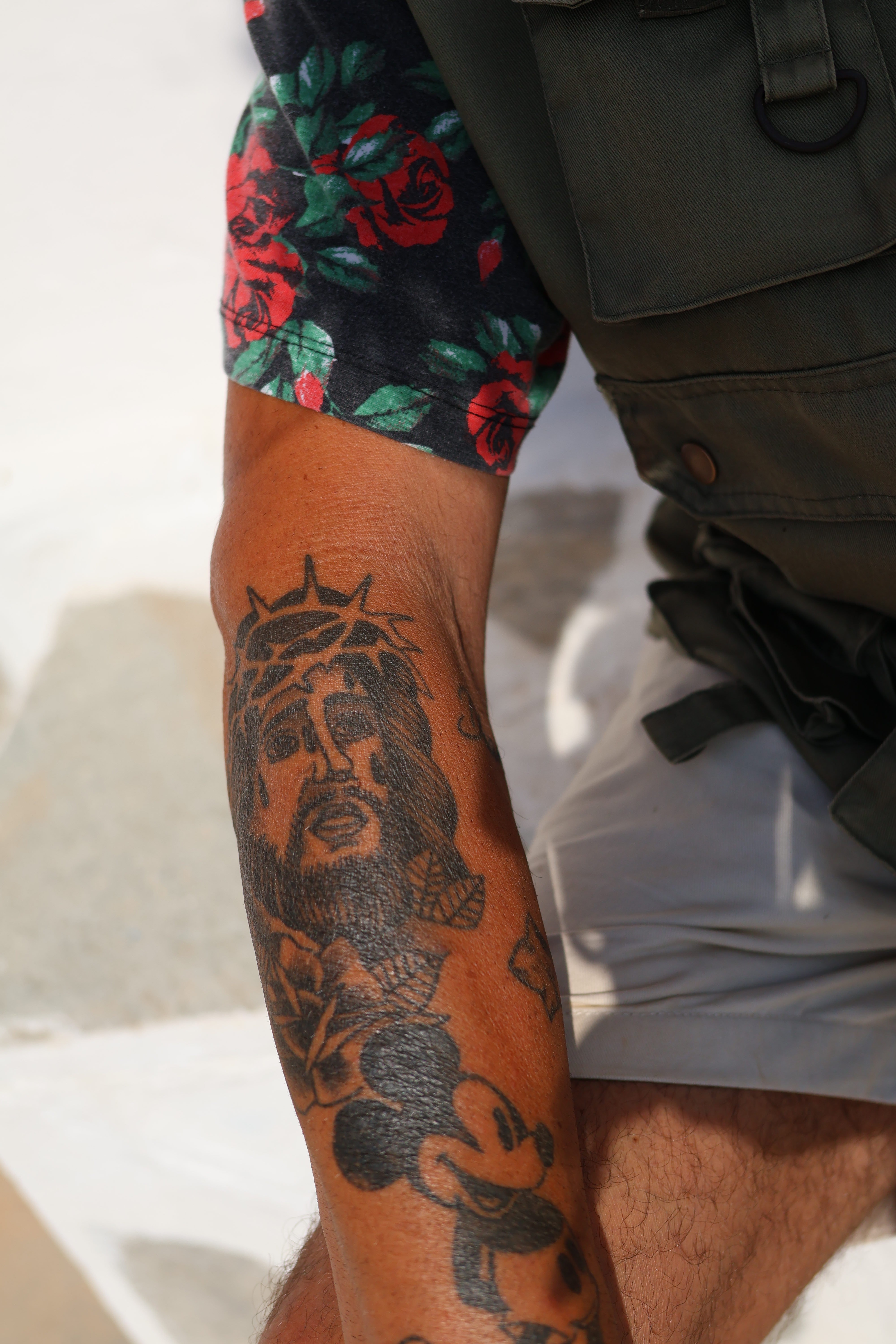Ilias Vonapartis, portrait of a call from home
.jpg)
Tattoos from Marseille, memories from the Bronx, and a red cap pulled low over his brow—Ilias Vonapartis is a man shaped by the road, but anchored by home. After decades abroad, he returned to his native island of Kassos, driven by memory, family, and a quiet sense of belonging.
On my first morning on Kasos, I met Ilias Vonapartis over breakfast. He wore a red “Greece” cap as if he was a tourist here, tattoos on both arms, and rode up on a scooter that seemed held together by habit and hope. There was something instantly likeable about him—warm eyes, dry humor, a presence both steady and restless. He reminded me of the kind of grandfather you wish you had: cool, open, and full of stories.
We met again later that week at the Monastery of Saint George, high in the hills where his nephew once played as a child. The place was peaceful—just the wind and a view of sheep in the distance. Ilias helps keep the place in shape: small repairs, sweeping, tending to the old bell that still rings across the mountain. He spoke slowly, with a mix of Greek cadence and American phrasing, switching languages like a man who’s lived many lives. “I was born here,” he said. “But I left when I was twelve.”

Like many on Kasos at the time, his family was poor. With no work and no future on the island, they moved to the United States. Ilias ended up in the Bronx and later studied engineering. At nineteen, he returned to Greece and began a career in the shipping industry, working on boats that took him all over—Marseille, Morocco, Algeria, Tunisia. He lived thirteen years in Marseille and still talks about it with affection, though he says the city has changed.
Now, Ilias lives a modest, quiet life on Kasos again. He returned to care for his elderly mother. Though retired, he’s never idle. “You’ve got to move your body,” he told me. “If not, it catches up with you.” He exercises daily, hikes hills, and tends to his land. He hunts rabbits with his dogs and knows every path in the mountains.
Family means everything to him, as the “Mom” tattoo on his left arm makes clear. It was his nephew who first introduced us. During our conversation, nearly every story circled back to his family—his sister in Athens, his brother in the U.S., his niece who runs a nearby guesthouse. “That’s my blood,” he said with pride.
"My memories. That's what brought me back. This is my home. My family. I only have one"
When I asked why he came back after so many years abroad, he paused for a moment and said, “My memories. That’s what brought me back. This is my home. My family. I only have one.”
His view of the island’s future is clear-eyed. He loves it, deeply—but doesn’t idealize it. “There’s no future here for young people,” he said. “They should leave, study, work, and build a better life. Maybe they’ll come back someday.”
He speaks of Kasos with affection and a pragmatic sense of loss. “Here,” he told me, “you eat today, and maybe tomorrow you’re shaving your head just to survive.” He talks about Europe with admiration, and recounts his travels with energy and joy. Still, he’s chosen to live out his later years on this rocky, slow island, surrounded by mountains, sea, and the echo of his childhood.

There’s something grounded in him—full of movement, but rooted. He travelled the world and yet it’s Kasos that holds him now. When I asked if he ever thought of leaving again, he shook his head. “No,” he said. “Now is my best time. I’m retired.”
He showed me a picture of the monastery from decades ago. The evening light caught his face as he looked at it. “I lost a lot of friends,” he said softly. “But I’m here. I see the mountains, I see my family. That’s enough.”
Meeting Ilias didn’t give me the full picture of life on Kasos. But it gave me something better: a voice, a presence, a feeling of what it means to return—not to a place stuck in time, but to one shaped by memory, movement, and the people who choose, again and again, to come back.
Text & Photos : Maëlle Laurent
